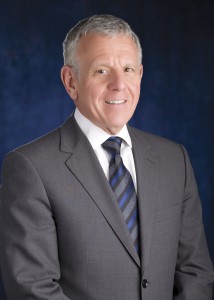By Leah Etling on April 22, 2015 in News
In the first quarter of 2016, ARK Development—a Racebrook portfolio company—will open The ARK at JFK, the world’s only animal-only airport terminal. Construction is now underway on the 178,000 square foot facility, which has made the news from Germany to Japan to India.
Racebrook CEO John J. Cuticelli Jr. is no Dr. Dol ittle – he has just one dog, a Cockapoo named Tucker, at home. But he is a savvy investor with an eye for unusual opportunities and assets, and so the concept of creating a world-leading animal handling facility, one that will see domestic pets, race horses, livestock, and perhaps the occasional zoo animal pass through its large doors, presented an appealing challenge.
ittle – he has just one dog, a Cockapoo named Tucker, at home. But he is a savvy investor with an eye for unusual opportunities and assets, and so the concept of creating a world-leading animal handling facility, one that will see domestic pets, race horses, livestock, and perhaps the occasional zoo animal pass through its large doors, presented an appealing challenge.
Cuticelli recently spoke about the project and its associated challenges.
What a fascinating idea – the world’s only privately owned animal handling cargo terminal – how did you come up with it?
Cuticelli: A Cornell veterinarian approached me with a document from the Port Authority of New York and New Jersey (Ed. note: a Yardi client), in which they were seeking a developer to build a 6,000 sf small animal veterinary hospital somewhere on the airport property. With my background in the airport freight business, I had some idea of the kind of animal volume that comes through the airport. Given the footprint and notoriety of JFK, my response to that was that a 6,000 square foot facility was just too small. If we wanted to make a significant contribution to animal care, it would have to be much more elaborate and fulfill the needs of the industry. That’s how it started.
So what is the volume of animal traffic that passes through the airport?
Cuticelli: One of the interesting things is that there’s no single place where you can gather that information, because there’s no unified manner in which these animals are handled today. Different government regulatory bodies handle different situations in their own way. So, this will be the first time that anybody will be able to address the real volume. JFK is a world destination. Once you have the facility, and the integrated capabilities to handle the animals, the business can be developed and built.
What kind of animals are we talking about?
Cuticelli: The bread and butter of the business are domestic cats and dogs, and racehorses certainly. But there are many other facets to the business. It’s important to note that this is both an import and export facility. As it relates to the export side, the U.S. is one of the largest exporters of breeding stock, such as cows and bulls. So we will have – designed by Dr. Temple Grandin – an entire area of this facility that just deals with the exportation of these animals.
I often joke about what happens when the first elephant comes through, if that happens, but we certainly expect to handle zoological animals to the extent that there’s a need, though I don’t believe they are a regular at any airport. We’re really looking at the more traditional kinds of animals that are shipped on a regular basis. The ones that people don’t think about are things like worms, which are used in agriculture and fisheries.
Was there an existing facility like this globally that you were able to visit and learn from?
Cuticelli: We researched several animal transport disciplines throughout the world. For example, Amsterdam has an animal facility that was built in the 80’s that is a pretty good execution. But, after nearly 30 years of operation, it has not kept up with the times. We learned a little bit from them. We also learned from the U.S. Department of Agriculture and how they handle quarantine and import. We did a lot of research on how temporary quarantine facilities are set up and how they handle events like the Kentucky Derby. Frankfurt, Germany has the Animal Lounge, which speaks primarily to domestic pets. But we couldn’t find anyone that aggregated all the disciplines in the way that we will create a composite of these disciplines.
The name is fantastic. Who gets credit for that?
Cuticelli: I have to give credit to my friend Suresh Kavan, who is the President and CEO of DMG Info, a division of the Daily Mail Group. We were sitting around one day discussing the project; I mentioned that I needed to come up with a name. He said: ’Why not just call it the ARK?’
Any unusual challenges or hurdles that you’ve faced while putting this deal together?
Cuticelli: Racebrook Capital is a company that I founded. It is a private equity firm, primarily funded by me. In dealing with the regulatory bodies, there’s really no benefit to anyone in the government to make a decision on an idea like this. How much time, how many resources, and how many dollars can you invest to convince a myriad of government agencies that this is a good idea? That was the biggest obstacle. So I think it’s the reconciliation between entrepreneurism and state, public, or corporate procedures. We’re not a big public conglomerate company or a major airline. We’re investing our hard-earned time and money in something that no one has ever done before.
Editor’s note: JFK Airport is managed by the Port Authority of New York and New Jersey, a Yardi Government Services client. This interview originally appeared on Commercial Property Executive.


